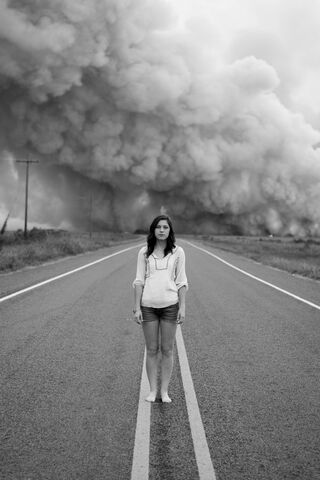Anxiety
What if 2020 Is Only the Beginning?
Holding space for uncertainty and introspection.
Posted December 31, 2020 Reviewed by Kaja Perina

The following is inspired by a therapy client who recently left counseling. Permission was granted to share a portion of our last session together.
I hope this helps you cope with uncertainty, too.
Obvious and tragic reasons aside, 2020 has been devastating.
When we're overwhelmed with uncertainty, identifying themes can help us narrow our focus and prioritize what is most important.
Common themes people bring into the therapy room include:
Grief and loss. Major losses are divorce, death, and unemployment.
Imposter Syndrome. A frequent flyer with anxious clients. Think perfectionism, fraud, and the belief that it’s only a matter of time until others discover you’re "incompetent." Making matters worse is our 24-7 access to social media and viewing everyone’s "highlight reel."
Rejection. Ghosting is rampant and a sign of emotional immaturity and a lack of conscience on the part of the non-sender. Too often, clients take the lack of communication as proof the problem lies with them.
Boundary setting. Difficulty identifying, maintaining, and enforcing appropriate limits within relationships is common.
Social Anxiety. This often involves the fear of being in public spaces.
In the case of my client, here are identified themes for 2020 (which may differ from yours):
- COVID-19
- Fears of death
- Familial conflict
- Racial inequality
- Can't deny the truth(!)
- Government mistrust
- Homelessness
We discussed the feelings these themes brought up.
- Fear
- Anger
- Hopelessness
- Helplessness
- Deep sadness
We then identified the benefits of 2020:
- Health
- Resilience
- Introspection
- Gratitude for blessings
- Reluctance to complain
- A deeper sense of others' suffering
Here are a few COVID-19 coping skills:
1. Recognition that pandemics are supposed to be devastating.
2. Willingness to adapt to new challenges and to adopt a flexible mindset (super important for anxious people).
3. Refusal to judge others' actions regarding personal protective equipment or PPE (a tall order).
How can this help you?
Identify your themes for 2020. Think of one or two words that define your worries and the time wasted in rumination or obsessive thinking.
Ask where your energy is best expended. A simple way to invite self-awareness is to ask yourself, "Is this feeling or interaction or situation helping me feel how I want to feel?"
Choose three coping skills to reduce fears of uncertainty. If stuck, read this article for actionable tips.
Reach out to three people to help support you. We're wired to connect. The beauty of seeking input from others is their lack of emotional attachment to the issue(s) at hand.
Name three unhealthy coping skills or habits you'll give up. Often we focus on adding more self-development actions rather than removing what's keeping us stuck.
What if 2020 is only the beginning?
No one knows.
As the therapy hour elapsed, I asked my client to identify a theme that represents stability and imperviousness to death and disease (relatively speaking):
“Nature.”
Ecotherapy centers around the connection between humans and the natural environment. Our psyches exist with nature. I often end the therapeutic relationship by summarizing our work together, seeking feedback, and asking for a mantra to recall under times of stress and uncertainty. Here is theirs:
“Follow the flow of nature; focus on self-control.”
Nine words to live by in the coming year and beyond.
© 2020 Linda Esposito, LCSW




